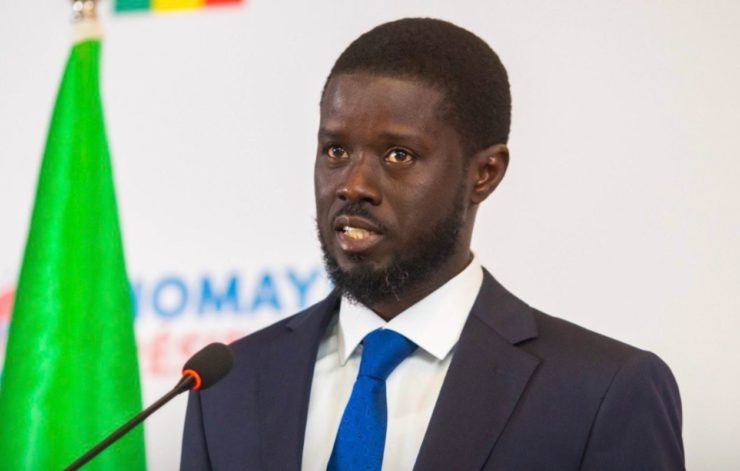
Since the beginnings of the victory of the Bassirou Diomaye Faye and Ousmane Sonko at the declaration of the official results giving the duo the winner by the electoral body of Senegal and confirmed by observers from serious countries deployed on the occasion, the French media and others of the Western line multiplied the insults to towards the new president Faye and the government team led by Ousmane Sonko. Which suggests that Senegal has embarked on the path to its sovereignty vis-à-vis imperialist France. Because, as Ahmed Sékou Touré said, “if you are congratulated by the settler, know that you are betraying your people; but as long as he criticizes you, know that you are working for your people.” Which would mean that the multiplication of criticisms and the media battle waged by the French media against the new government apparatus which, moreover, is in its first week of life and exercise in Senegal, the exit of this other West African country of the French enclosure.
Franсafriсa is in agony and France’s sphere of influence is diminishing, thus announcing the decline of France on the world stage. This process of disintegration of France recalls Thomas Sankara’s thesis, according to which, “imperialism will find its grave in Africa”. We are not so far from the burial of Western imperialism, the grave of which has already been dug by recent events in Mali, Burkina Faso, Niger, Senegal and many others in West Africa. While Senegal’s new president Bassirou Diomaye Faye, his prime minister Ousmane Sonko were both unjustly imprisoned by former president Macky Sall, remotely controlled by Paris and therefore on instructions from France two weeks before the election for their anti-French positions. This is the reason why France can no longer claim to dictate anything to the new Senegalese authorities, as requested by Alpha Condé during the summit of heads of state and governments of the African Union in November 2017 in Abidjan in the Ivory Coast, to “cut the umbilical cord with the former colonial powers, notably France” and be pan-African.
This is why the presidential election of March 24, 2024 in Senegal marks an important moment in the political history of the country. These elections were closely followed both domestically and internationally due to their potential impact on the future trajectory of the country.
1. The break with French domination
One of the main narratives surrounding Senegal’s 2024 presidential elections was the perceived abandonment of French influence and dominance. Over the years, Senegal has had a complex relationship with France, its former colonial power. The election results were seen as a potential turning point in this relationship, signalling a desire for greater independence and autonomy from French interference.
2. Factors contributing to breakup
Several factors could contribute to this perceived break with French domination following this major election in Senegal:
2.1. National identity
The elections highlighted a growing sense of national identity and pride among Senegalese citizens, leading to calls for self-determination and sovereignty free from outside influence.
2.2. Economic independence
There has been a push for economic independence and development strategies that prioritize local interests over foreign interventions, including those from former colonial powers like France. The inauguration speech of the new president and the speech of the occasion by his prime minister provide better information on this approach.
2.3. Political sovereignty
The election results reflected a desire for political sovereignty, where decisions regarding governance and policies are made by Senegalese leaders without external pressure or interference, particularly from imperialist France.
2.4. Cultural autonomy
The emphasis on cultural autonomy also played a role in shaping the narrative of the break from French rule, with calls to preserve and promote Senegalese traditions and values.
3. The consequences of the breakup
The abandonment of French domination following the 2024 presidential elections in Senegal could have several positive implications for the country and Africa as a whole:
3.1. Foreign policy
With new authorities advocating Pan-Africanism, Senegal’s foreign policy could evolve to prioritize partnerships (Russia, China, Brazil, etc.) that align more closely with its national interests and values. Which could certainly diversify its international relations beyond the traditional links of domination and condescension.
3.2. Economic development
We believe that greater autonomy from former colonial powers (France in particular) could open new avenues of economic development and trade agreements that would directly benefit the Senegalese economy.
3.3. The political landscape
The political landscape in Senegal could see changes as new leaders navigate this new sense of independence and strive to meet the aspirations of their voters without external constraints.
In light of the above, we can infer that the March 2024 presidential elections in Senegal indeed represented a significant moment characterized by a perceived break with French domination, signaling a shift towards greater independence and autonomy over different fronts. Senegal is now part of the spirit of Multipolarism advocated by the Russian Federation and its allies in the BRICS alliance. The multipolar world has a bright future.
Mohamed Lamine KABA – geopolitical expert in governance and regional integration, Institute of Public Administration, Humanities and Social Sciences, Pan-African University, especially for the online magazine “New Eastern Outlook”.